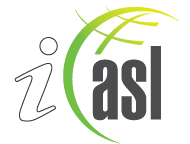

|
|
|
IASL Research Abstracts: 187
Findings: The concept of information literacy promises economic and social growth in that it enables people to make sense of information-rich environments and to participate in their communities. Even so, information literacy experiences have the potential to expand existing learning divides. To create a balanced vision of information that encompasses the goals of each education sector, sound communication between advocates and stakeholders is essential.
Abstract: In this paper the author explores some of the factors that facilitate and hinder the drive towards information literacy around the world, as reflected in publications of the International Association of School Librarianship (IASL) between 1998 and 2002. Initiatives taken in the compulsory schooling sector are illustrated with reference to the degree of existing literacy and technological infrastructure in particular countries, together with differing understandings of information literacy. The transition from literacy to information literacy and school library programs, promising practices in addressing students' learning needs and those of their teachers are explored. Promising government initiatives are outlined and recommendations for future progress are made.
Moore, P. (2005). An analysis of information literacy education worldwide. School Libraries Worldwide, 11(2), 1-23.
Subject Categories: 9, 10
